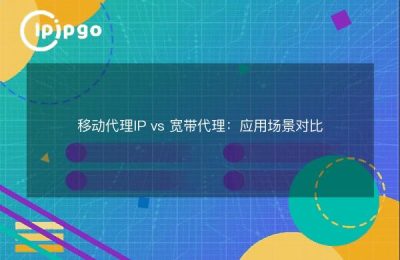
What's so special about a static residential line?
Many people get confused about the difference between a static IP and a dynamic IP. In simple terms.A static residential line is like giving you a fixed "home address."The dynamic IP will change every time you reboot. For example, if you open an online store and need to log in to the background with the same IP for a long time, the dynamic IP will change every time you restart, and it is easy for the platform to determine the abnormality. The static IP is fixed, which is especially suitable for those who need toStable online for a long timescenarios, such as store back-office management and customer service system docking.
Why is a static residential IP necessary for store operations?
For example: a seller operating 10 store accounts at the same time, if they all use ordinary data center IP, the platform is easy to recognize that these IPs belong to the server room, resulting in account blocking. And likeStatic residential IP for ipipgoIf the account is directly from a real home broadband and the IP type is "residential", the platform's risk control system will default to normal user behavior. Measurement data shows that the survival rate of accounts using residential IP is more than 3 times higher than that of server room IP.
How to manage multiple account security with ipipgo?
Here's a practical tip: Bind an independent static IP to each store account. e.g. if you have stores in the US, Europe, and Southeast Asia, through the ipipgo backend you canPrecise IP selection by country/cityIt is also possible to set the IP fixing period (7 days/30 days/semi-annual). Remember three key points when operating:
1. Never mix different accounts with the same IP address.
2. Logging times should mimic real people (avoid frequent operations in the middle of the night).
3. Browser fingerprints should match the IP location (e.g. US IP with English system language)
Three Pitfalls You Must Avoid When Choosing a Service Provider
Many service providers in the market will use "unlimited traffic" and "low price" to attract users, but there are hidden risks:
Trap 1: Shared IP pools - Hundreds of people share the same IP segment and get blocked while using it.
Trap 2: Incomplete agreements - Running Socks5 business with only HTTP support
Trap 3: Low IP purity - Recycled used IPs come with their own black history
While ipipgo's residential IP resources are directly connected to local carriers, each IP has been through theReal-life environmental testingIt supports HTTP/HTTPS/Socks5 full protocols, and the IP active cycle can be checked to reduce the risk from the root.
Frequently Asked Questions
Q: Which costs more, a static IP or a dynamic IP?
A: Static IP needs to occupy resources for a long time and the price is usually 2-3 times of dynamic IP, but like ipipgo providesper diem model, use a few days to pay a few days, especially suitable for short-term campaign operations.
Q: What should I do if my IP suddenly fails to connect?
A: Check the local network first, then use ipipgo'sReal-time diagnostic toolsTest IP status. If it is confirmed to be an IP problem, the system will switch to the backup line in seconds, the whole process does not require human intervention.
Q: Can I specify the IP of a certain city?
A: ipipgo supports city-level positioning in 240+ countries/regions around the world, such as the need toResidential IP in a neighborhood in Los Angeles, USAThe range can be boxed on the backend map, with a positioning error of no more than 2 kilometers.
Writing here may be asked: why specifically emphasize residential IP?Because now the platform wind control is getting smarter and smarter, ordinary server room IP will be marked with a feature code in the first 5 requests. And real residential IPs like ipipgo not only come with the whitelist attribute of home broadband, but also through theTerminal equipment simulation technologyAutomatically matches router model and carrier information to truly "make machines look like people".








